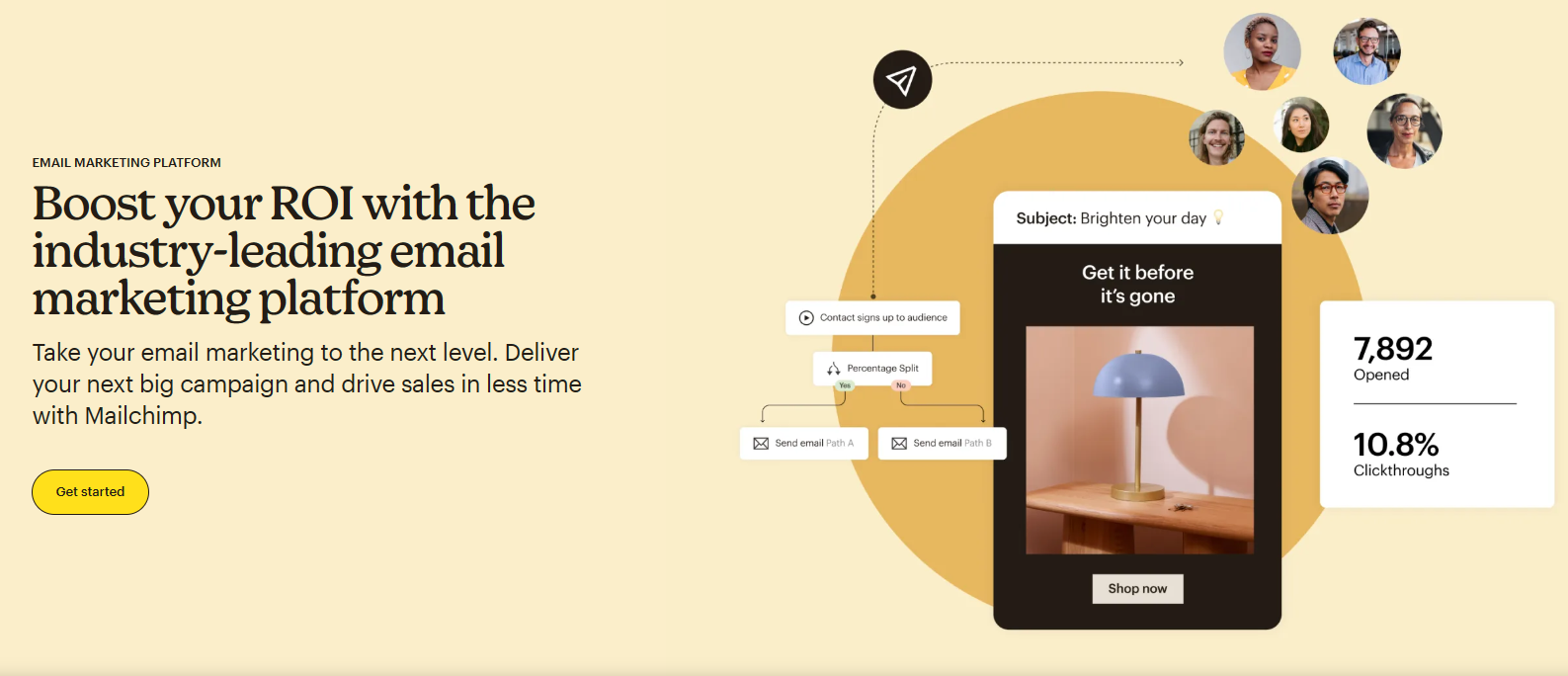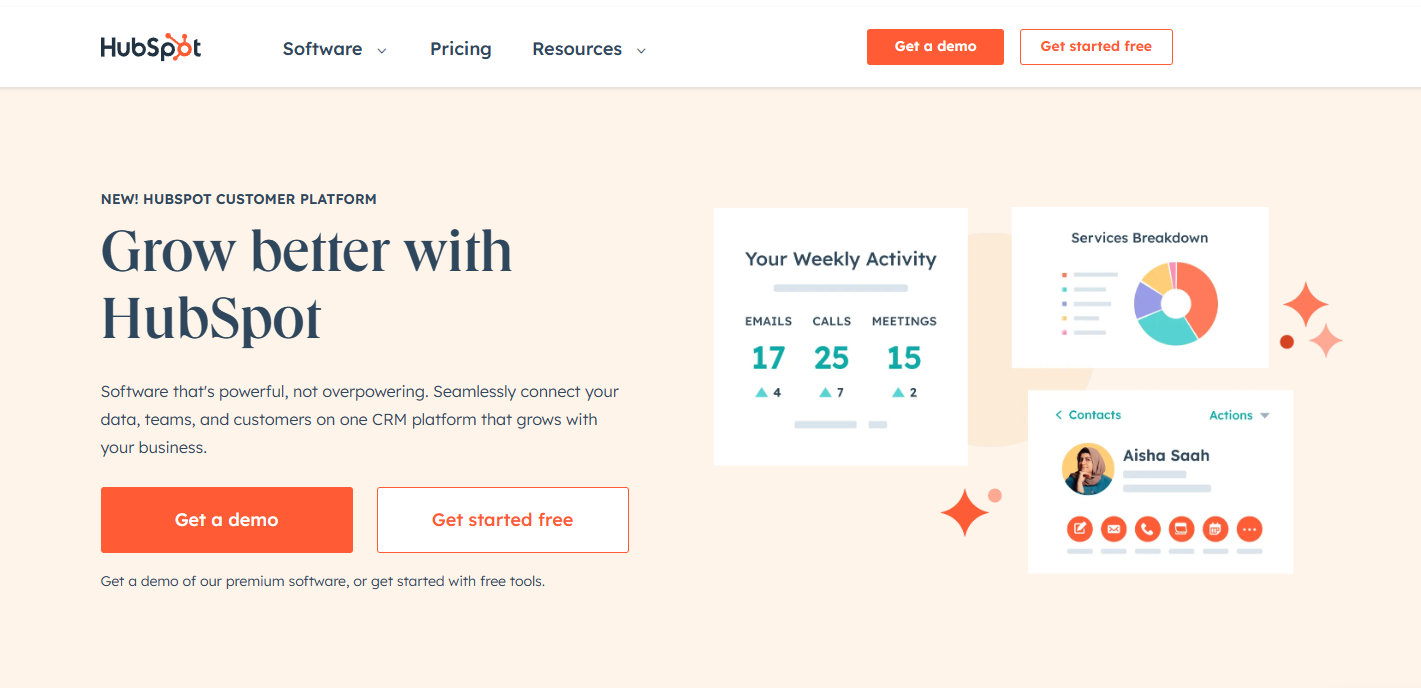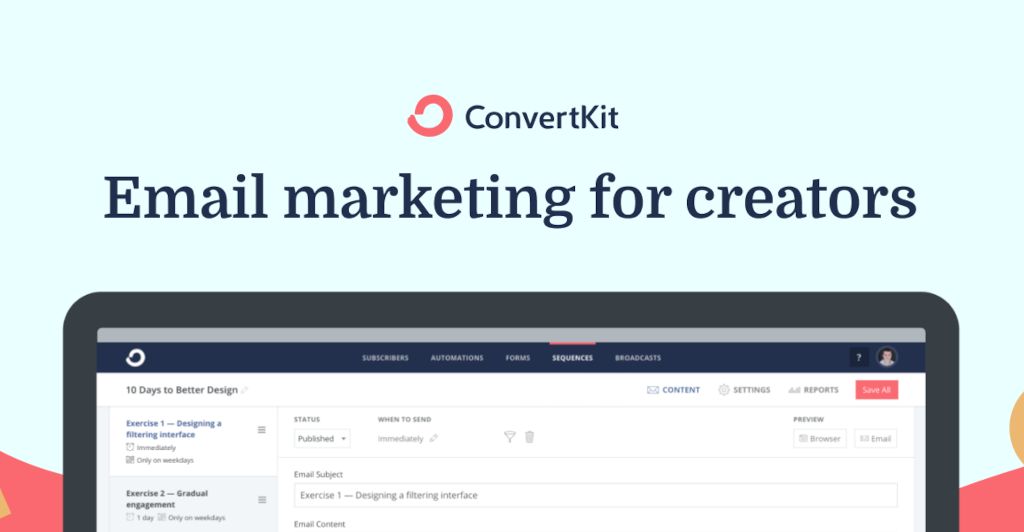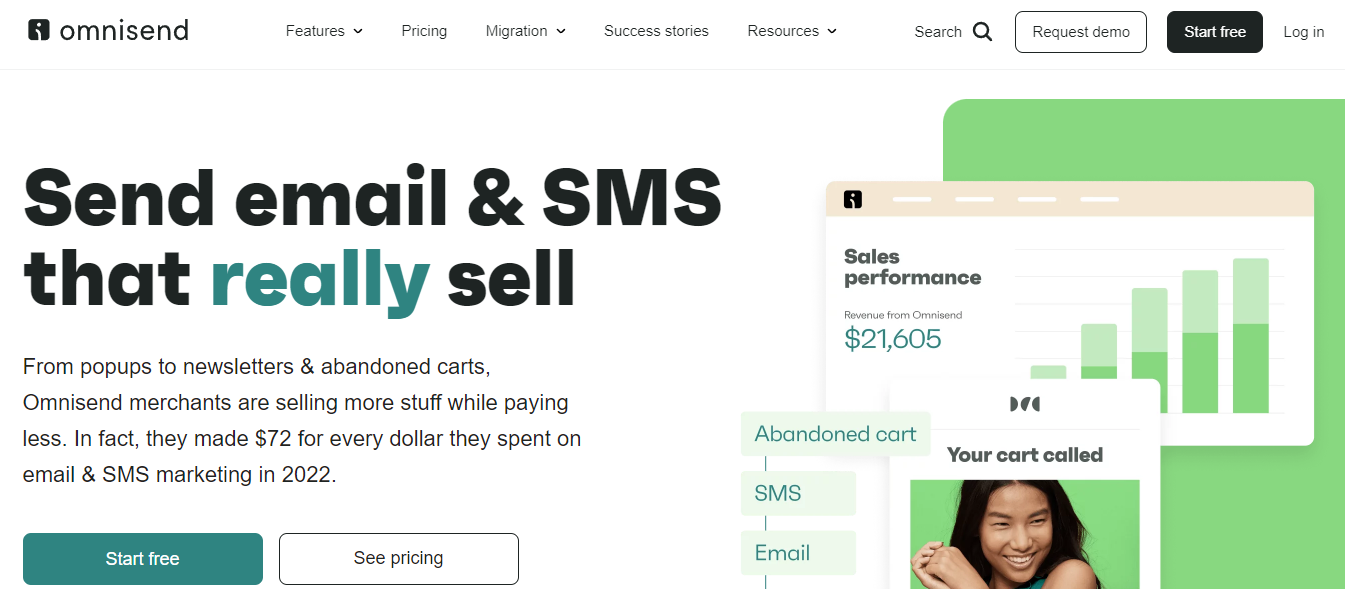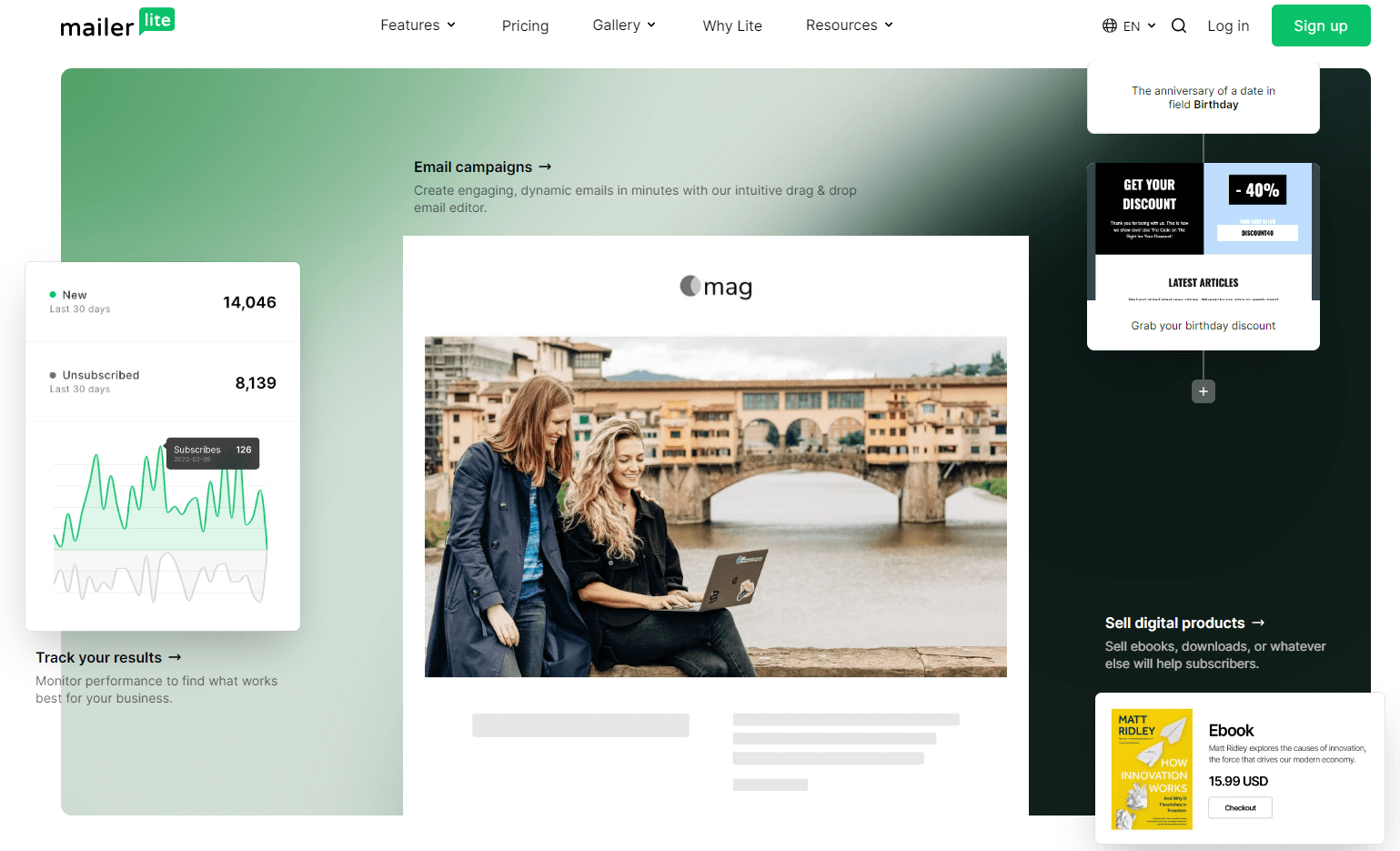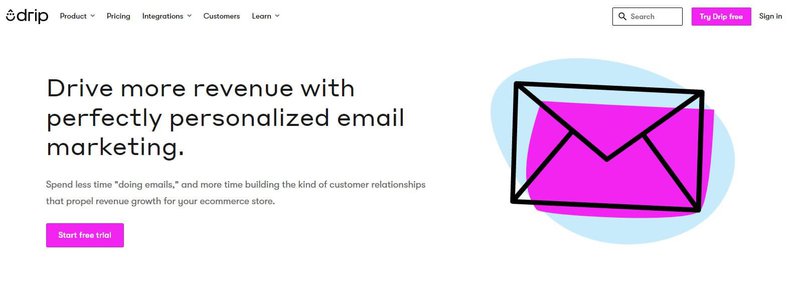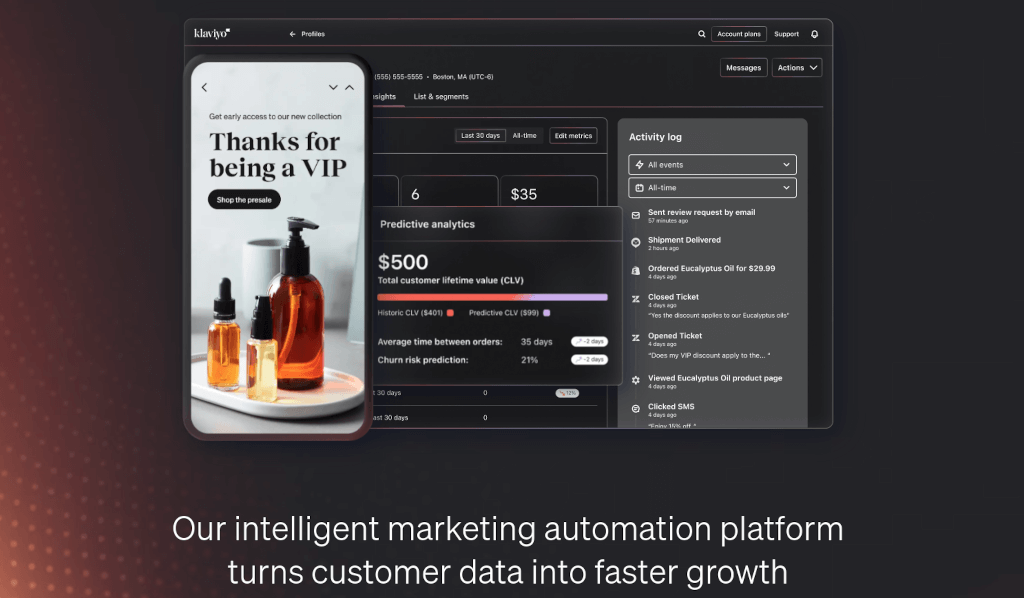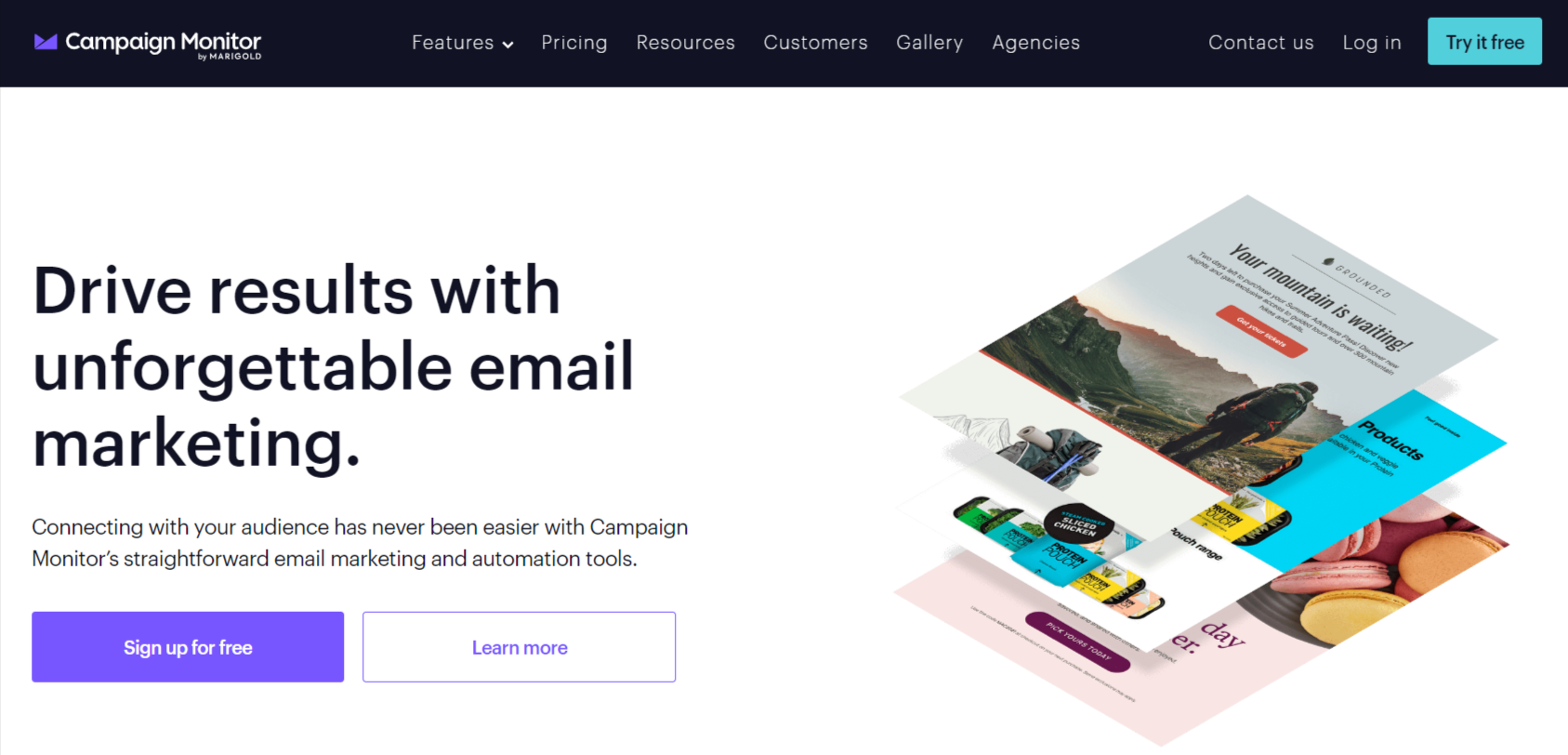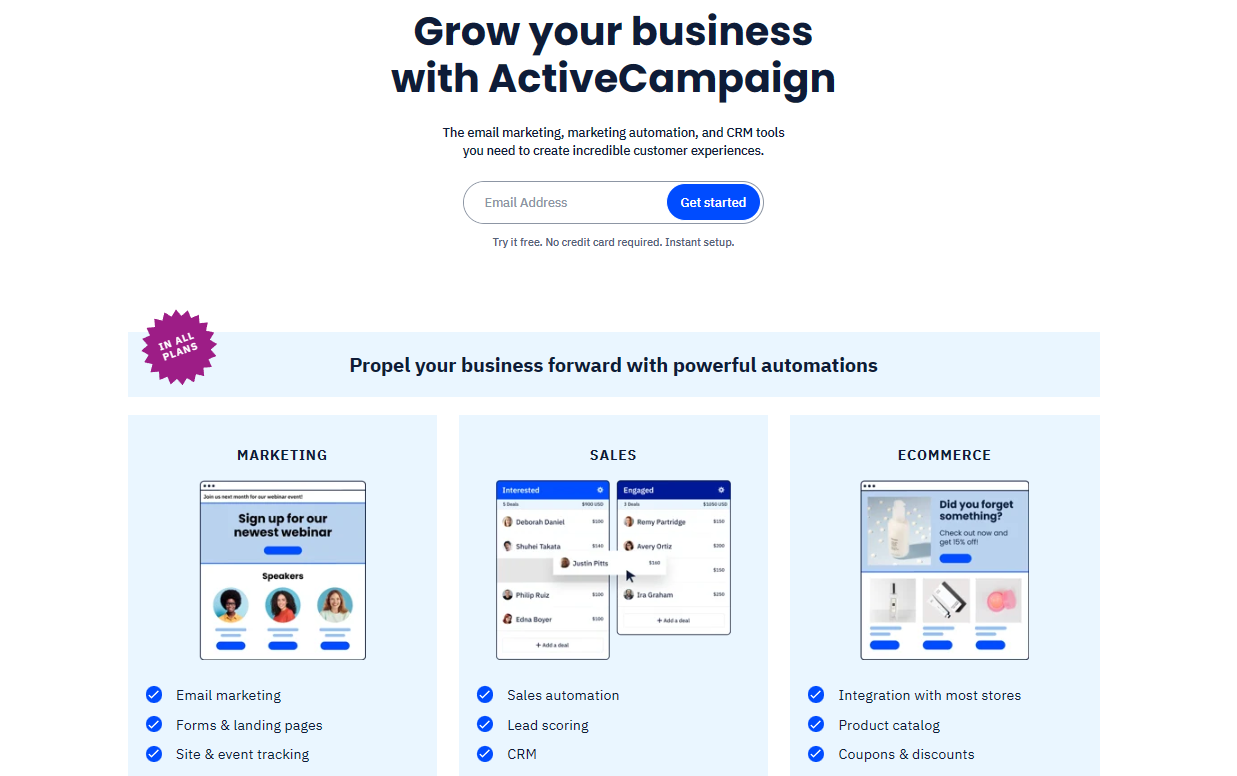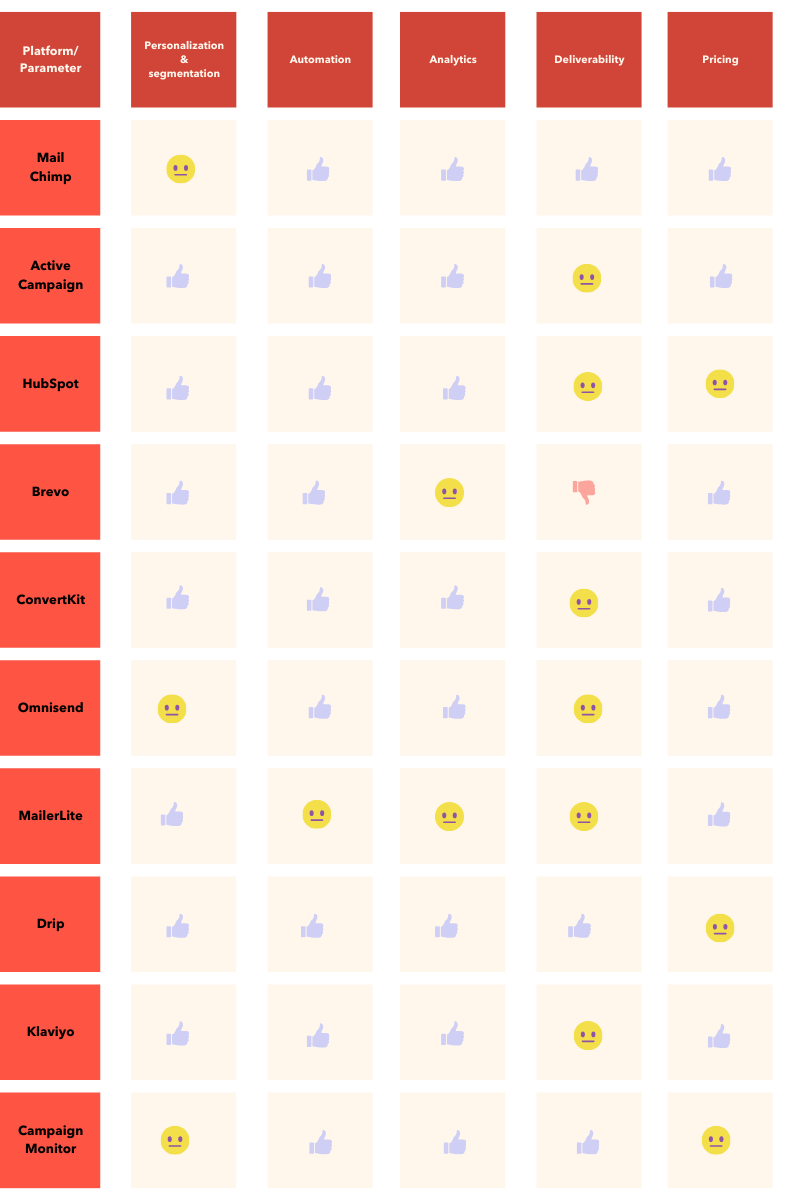Small Businesses: You Need These Top 11 Email Marketing Software Solutions
Looking to expand your small business's email marketing efforts? Here's a list of vetted email marketing tools to try in 2023.
Updated March 15, 2024
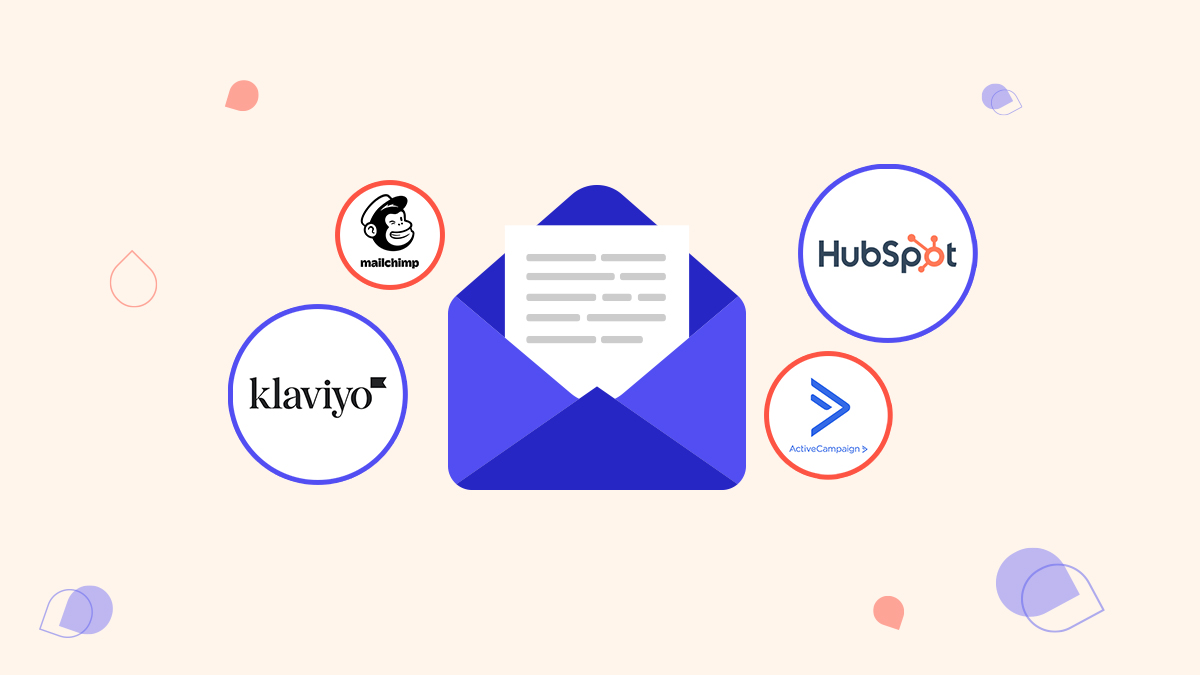
Email marketing software needs to be versatile and reliable. That's especially true for small businesses with limited resources. You want these tools to come with features that make communicating with your list easy while creating campaigns that stand out.
After all, people's inboxes are crowded. Both Campaign Monitor and Mailchimp, two of the most popular email services around, report an average open rate of just over 20%.
That's fierce competition to get your email in front of the eyes of your audience. When it does, it can double your ROI. So, finding the right software to help you automate, personalize, and refine your campaigns is essential. Let's take a look at 10 of the best for small businesses.
Top 11 email marketing software solutions for small businesses
1. ActiveTrail - Best overall
2. MailChimp - Best value for money
3. HubSpot - Best for B2B businesses
4. Brevo - Best for omnichannel campaigns
5. ConvertKit - Best for brand building
6. Omnisend - Best for eCommerce entrepreneurs
7. MailerLite - Best for small businesses on a budget
8. Drip - Best for automation
9. Klaviyo - Best for small businesses looking to scale
10. Campaign Monitor - Best for ease of use
11. ActiveCampaign - Best for personalization
Our methodology: How we reviewed the best email marketing software solutions
To find the best email marketing options, we compared several key factors, including:
- Range of features (templates, drag-and-drop editors, etc.)
- Pricing (monthly vs. list size, overall cost)
- Ease of use (beginner vs. advanced)
- Integrations (number and variety)
- Automation (workflow automation, autoresponders, etc.)
What is email marketing software?
Email marketing software is any tool or platform that helps you create, send, and track email campaigns.
It simplifies the process of designing emails, managing subscriber lists, analyzing campaign performance, etc. So, it's a great way for small business owners like you to promote products, services, or information to a targeted audience via email.
» Want to sell without sounding salesy? Learn to use transactional emails like a pro
What to look for in email marketing software
Choosing the right email marketing software for your small business will depend on your needs, the size of your email list, your budget, and the campaign features you need for your email marketing campaigns. Here are the core criteria you can look at when evaluating email marketing tools:
- Ease of use: Your email marketing software should be user-friendly with an intuitive interface. Time spent struggling with a tool is time taken away from core business activities.
- Cost: Consider immediate and long-term costs as your subscriber list or feature needs grow.
- Scalability: Make sure the software can cater to your needs as your business grows. Frequent platform switches can be disruptive and costly.
- Integrations: Check for compatibility with other tools you use, like CRM systems, eCommerce platforms, and social media integrations. This can help to streamline workflows, maintain data consistency, and lead to more upsells and faster deals.
- Segmentation features: Robust segmentation capabilities are essential for targeting different industries, company sizes, or stages in the buying cycle.
- Personalization and automation: Personalized content can significantly enhance engagement. Look for tools that allow automated email workflows based on user behaviors or specified triggers.
- Analytics and reporting: Comprehensive insights into open rates, click-through rates, bounce rates, and more can guide strategy and improve campaigns over time.
- Deliverability: Ensure the tool has a good reputation for getting emails into recipients' inboxes, not spam folders.
- Templates and design: Access to well-designed, mobile-responsive templates can save time and ensure your emails look professional.
- Customer support and community: A responsive support team and a vibrant user community can be invaluable, especially when facing challenges or needing tips.
Possible considerations and limitations
While these tools are good at some things, they also have limitations. Here's a brief overview of how each tool stacks up on functionality.
Let's take a more in-depth look at the top three tools.
Templates
Mailchimp only comes with generic templates; brands often have to create and save their own. HubSpot and Active Campaign offer a wider range of templates, allowing you to skip the hassle of writing a brand-new email every single time.
Learning curves
ActiveCampaign's powerful features can be overwhelming for some, yet its CRM capabilities aren't as exhaustive as specialized CRMs. Meanwhile, the various options HubSpot offers can be downright daunting for beginners to navigate. The easiest to learn, by far, is MailChimp.
The cost factor
HubSpot's premium pricing may not make sense for some small B2Bs, and there's potential for platform lock-in, as migrating away from the platform after deep integration can be challenging. On the other hand, Mailchimp offers a cost-effective option with free tiers and scalability, while ActiveCampaign's prices can escalate as contacts increase.
Integrations
As briefly mentioned, seamless integration with other business tools, such as CRM systems, is vital for B2B email marketing success. ActiveCampaign and HubSpot excel in integrations, while Zapier can bridge gaps for Mailchimp.
Personalization and segmentation
In B2B email marketing, personalization and segmentation are of utmost importance. All of the email marketing software tools offer great options for personalization, including merge gaps, custom fields, and dynamic content. Out of the three, however, MailChimp has the fewest personalization features.
Analytics and reporting
For actionable insights, you want to focus on analytics such as the open rate, click-through rate, conversion rate, bounce rate, unsubscribe rate, behavioral insights, segment-specific reports, revenue attribution, and list growth rate. All of the recommended tools stand out in providing comprehensive analytics.
User experience and training
User-friendliness and ease of adoption are crucial for small businesses. That's why you want to look for platforms that offer intuitive interfaces and comprehensive training resources. Mailchimp and ActiveCampaign do this well with a helpful and simple task roadmap and a getting started hub, respectively. HubSpot offers a lot of helpful training information in its knowledge base, but it can be a bit tricky—and downright overwhelming—to find your way around.
Choose right the first time
Selecting the right email marketing software for your small business is a significant step that can completely transform the trajectory of your company. When making your decision, be sure to consider your unique needs and goals and prioritize features, ease of use, and scalability.
And don't forget to leverage the power of personalization and analytics. With the right tool—and an experienced email marketer to help you wield it—you too can unlock the full potential of email marketing and drive growth for your business in 2023 and beyond.
Meet the expert
Sandra Stepan, a seasoned digital marketing and eCommerce expert, is the founder of SnapAdvantage. Her diverse portfolio includes collaborations with startups and companies with $20 million in annual recurring revenue (ARR).




